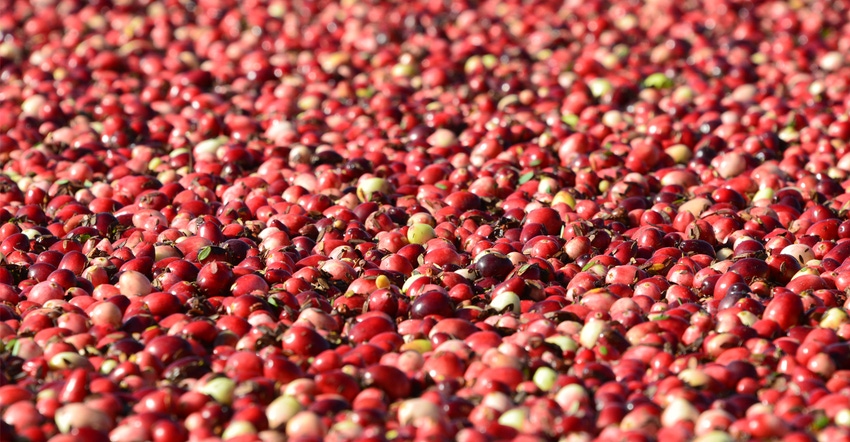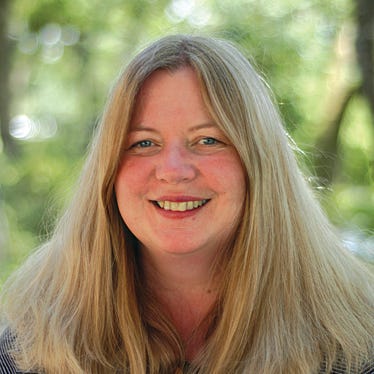
Universities are incubators for many of our nation’s most popular produce items — from the HyRed cranberry developed at the University of Wisconsin-Madison to the Honeycrisp apple created at the University of Minnesota. Universities also have created corn hybrids, soybean varieties, drugs for humans and livestock, and countless other inventions.
University research in danger
But colleges and universities across the country fear these research hubs are in danger. Thirty-six members of Congress are trying to weaken the Bayh-Dole Act, a law that has been around since 1980 that allows universities to patent and license inventions created through federally funded research.
Kevin Walters is the strategic research coordinator at the Wisconsin Alumni Research Foundation at UW-Madison. WARF is the organization responsible for commercializing the HyRed cranberry and hundreds of other UW-Madison inventions, including the drug warfarin, a commonly used blood thinner for humans. It was developed in the 1940s at UW-Madison and named after WARF.
Walters says weakening the Bayh-Dole Act would be disastrous for organizations like WARF at universities across the country, as well as for U.S. consumers.
“University technologies would struggle to attract industry investment if, after the research and development has already taken place, a government agency deems the end result to be too expensive and steps in to interfere with the contractual licensing agreements,” he says.
According to AUTM, a national organization of technology transfer professionals, nearly 70% of academic inventions are licensed by small companies, many of which depend on venture capital.
Emily Bauer, director of licensing at WARF, explains how the partnerships between universities, the federal government and a company work in the case of creating new cranberry varieties.
“The technologies are invented on campus,” Bauer says. “The development is done by companies who can do trials much larger than anything we can do on campus. WARF owns the patents. Companies want to make sure if they invest in a technology, they will be able to develop it. If they have to deal with the potential of the government taking that away, they won’t take the risk. If companies are concerned that their agreements with us could be weakened or canceled after the fact, they won’t work with us.”
Bayh-Dole advocate
Joe Allen worked on Sen. Birch Bayh’s staff in 1980 and helped get the Bayh-Dole Act passed.
“I was in the right place at the right time,” he says. Forty years later, Allen works as a consultant and is head of the Bayh-Dole Coalition.
“I work to explain to people what the Bayh-Dole Act is all about,” Allen says. “We want to keep it working as it was written. There are people who are trying to undermine it. We are trying to keep the flame pure.”
Allen explains that before 1980, universities couldn’t own many of the discoveries resulting from their research.
“The government claimed the patent rights for all federally funded research, regardless whether federal employees were the ones conducting the research or whether federal grants funded only a small percentage of the work,” Allen says.
As a result, inventions ripe for commercialization sat on the shelf.
“The federal government lacked the know-how and capacity to turn the research conducted by scientists into real-world products. Out of the 28,000 patents owned by those agencies, just 5% were licensed to the private sector,” he explains.
Commonsense solution
Sens. Birch Bayh, D-Ind., and Bob Dole, R-Kan., realized that the policy needed to change and persuaded their colleagues to pass reform, Allen says. President Jimmy Carter signed their namesake bill into law a month before he left office.
“The Bayh-Dole fix was simple,” Allen says. “The law requires universities and nonprofits to make good-faith efforts to commercialize research funded by federal grants. In exchange, research institutions could keep the patents, providing strong incentive to license them to a private-sector company that could realize the full value of their inventions. The Bayh-Dole Act laid the groundwork for 40 years of technological innovation, job creation and improved quality of life.”
Allen says there is a lot of interest in the Bayh-Dole model in other countries. “A lot of countries want to adopt this model.”
Allen says the U.S. and the world are fortunate that the Bayh-Dole Act was in place in 2020 when the pandemic hit.
“Thanks to Bayh-Dole, we have vaccinations that work,” Allen says. “The vaccines were made possible because of federally funded research. We had effective vaccines developed in months rather than years because of unprecedented cooperation between universities, the federal government and industry. Without Bayh-Dole, that wouldn’t have happened. A year ago, we were all praying somebody could develop a vaccine. It was done in record time and is literally saving the world.”
Those who want to weaken the Bayh-Dole Act argue that drug prices are too high and weakening the Bayh-Dole Act would lower them. They believe if a product is made from a federally funded invention, and if someone complains the product is too expensive, the government should allow copycat companies to make it.
“We don’t want drugs to be expensive, but we don’t have control over that,” Walters argues. “The drug companies control drug prices. If the product is difficult and expensive for the consumer to buy, it’s probably expensive to make.”
Decision is imminent
Allen says a regulation is pending ensuring Bayh-Dole will continue to be implemented as written, but opponents are urging the Biden administration to undermine it. The decision will be made soon. “The opponents can’t amend the law in Congress, so they want to change how it is implemented,” Allen says. “They want to set us back more than 40 years.
“President Biden supported Bayh-Dole 40 years ago when he was in the Senate. There is a lot of pressure being put on the Biden administration to misuse Bayh-Dole. We have done that experiment — it just doesn’t work. If they weaken how the law’s implemented, I think the system will collapse. If that happens, we better pray we never have another pandemic, because our system of public-private sector research alliances will be in shambles. Hopefully, the administration won’t let that happen.”
Read more about:
Bayh Dole ActAbout the Author(s)
You May Also Like






